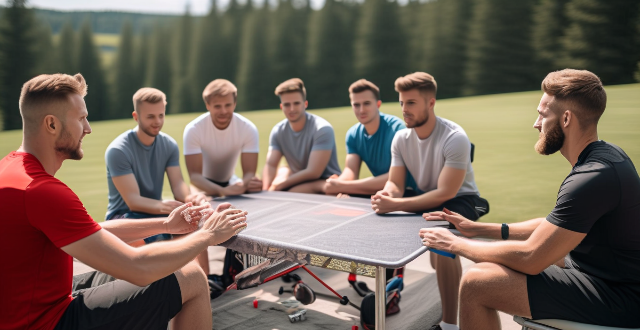When an NBA team encounters a losing streak, coaches must make strategic adjustments to break the cycle of defeat. These include analyzing performance data, changing rotations, implementing new strategies, emphasizing team culture, focusing on mental and physical conditioning, utilizing video analysis, increasing accountability, employing motivational tactics, and seeking external help. By being adaptable, patient, and consistent in their approach, coaches aim to reverse the momentum of a losing streak and steer their teams back toward victory.

Adjusting Tactics During a Losing Streak in the NBA
When an NBA team goes through a losing streak, the coaching staff must make strategic adjustments to improve performance and break the cycle of defeat. Here are some common tactics coaches may employ during such challenging times:
Analyzing Performance Data
- Identify Weaknesses: Coaches scrutinize game film to pinpoint areas where the team is underperforming, such as defensive lapses or turnover issues.
- Statistical Analysis: Advanced metrics are used to evaluate player efficiency and identify trends that contribute to losses.
Changing Rotations
- Increase Minutes for Effective Players: Coaches might play their best performers more minutes to boost productivity on the court.
- Sitting Underachievers: Players who are not meeting expectations might see reduced playing time to send a message about performance standards.
Implementing New Strategies
- Defensive Schemes: Switching up defenses, like going from man-to-man to zone, can throw off opponents' rhythm.
- Offensive Approaches: Adjusting offensive sets or plays to exploit opposing teams' weaknesses or to better suit the strengths of certain players.
Emphasizing Team Culture
- Team Meetings: Addressing the entire squad to reinforce positive attitudes and team cohesion.
- Clear Communication: Ensuring that all players understand their roles and what is expected of them.
Mental and Physical Conditioning
- Practice Intensity: Increasing practice intensity to raise the level of competition and prepare for games.
- Rest and Recovery: Scheduling additional rest days or light practices to prevent burnout and allow for physical recovery.
Focusing on Fundamentals
- Skill Development: Placing a greater emphasis on skill work, such as ball handling or shooting, to improve overall execution.
- Repetition Drills: Running drills repeatedly to build muscle memory and consistency in execution.
Utilizing Video Analysis
- Educate Through Video: Showing players video clips of successful plays and where they went wrong to provide clear examples of desired outcomes.
- Opponent Scouting: Analyzing upcoming opponent's tendencies to prepare tailored strategies for future games.
Increasing Accountability
- Individual Assessments: Holding players accountable for their actions on the court and ensuring they understand their impact on team success.
- Setting Goals: Establishing short-term goals for players and the team to focus on immediate improvement.
Motivational Tactics
- Inspirational Speeches: Giving passionate pre-game talks to inspire players and uplift their spirits.
- Team-Building Activities: Engaging in activities outside of basketball to strengthen bonds between players.
Flexibility and Patience
- Adaptability: Being open to changing strategies mid-game if initial plans are not working.
- Patience with Process: Recognizing that turnarounds take time and maintaining a long-term perspective on development.
Seeking External Help
- Consult Specialists: Bringing in sports psychologists or additional coaches to provide new perspectives and support.
- Engage Veteran Leaders: Leveraging the experience of veteran players to guide younger teammates through tough stretches.
By implementing these tactical adjustments, NBA coaches aim to reverse the momentum of a losing streak and steer their teams back toward victory. It's crucial for coaches to remain calm, calculated, and consistent in their approach while also being ready to adapt as necessary.